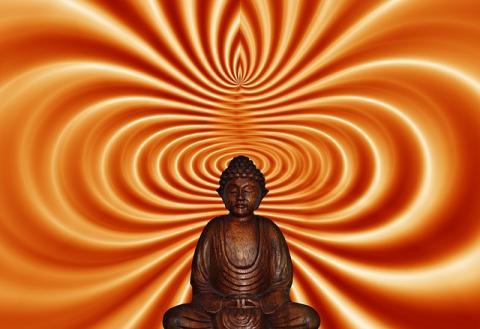
Things move fast during the course of a day, and sometimes you can barely stop to take a breath. Meditation is a surefire way to relieve some of these stressful moments, and it has many healthful benefits, too.
According to A Guide to Stress Relief written by author Sara Rose, there are two kinds of meditation: concentrative and “mindful.” Concentrative meditation consists of focusing your attention on something specific, such as your breathing, an image, a phrase or an object. Mindfulness meditation consists of being in a state of mind where you are aware of sensations, feelings and thoughts, but you remain detached from them. By practicing this kind of meditation, you experience the present moment to gain a calmer, non-reactive state of mind. Mindfulness is also known as vipissana or “passive awareness.”
If you don’t know how to meditate, it might be good to sign up for some meditation classes. There are also several meditation apps for both newbies and pros. Or, you can follow the tips listed below.
- Find a quiet place where you will not be disturbed.
- Practice regularly, preferably for 15 minutes, morning and night (meditation in the morning helps you feel calm and centered for the rest of the day and meditation at night helps you wind down).
- Meditate in a comfortable position, usually sitting up.
You can bring yourself to a meditative state using one of the following methods:
- Object meditation – Focus on a particular object, noticing its texture, shape and other qualities. Good examples are a crystal, a candle flame, a flower or a mandala (a picture with a focal point).
- Mantra meditation – a “mantra” is a word or a phrase repeated continually, silently or aloud. The Hindu word “om” is popular because of its oneness with the vibration of the universe, or you can choose your own.
- Breathing – Focus on your breathing, and count “one” on each exhale.
- Active meditation – T’ai Chi, swimming or walking can focus the mind and energize you at the same time.
Meditation can provide many benefits. For one thing, it enables you to control your mind instead of allowing it to control you, which brings peace and harmony into your life. If you meditate regularly, it can help alleviate anxiety, making you calmer, more mentally alert and more efficient in managing time and energy. Research suggests that meditation can incur the following benefits:
- A more relaxed body
- Improved sleep patterns
- Lower blood pressure and reduced pulse rate
- Improved circulation
So next time you feel overwhelmed and exhausted with life’s many demands and obligations, meditation just might be the answer. It can be done at home or at work, whenever you need some quiet time to clear your head.








